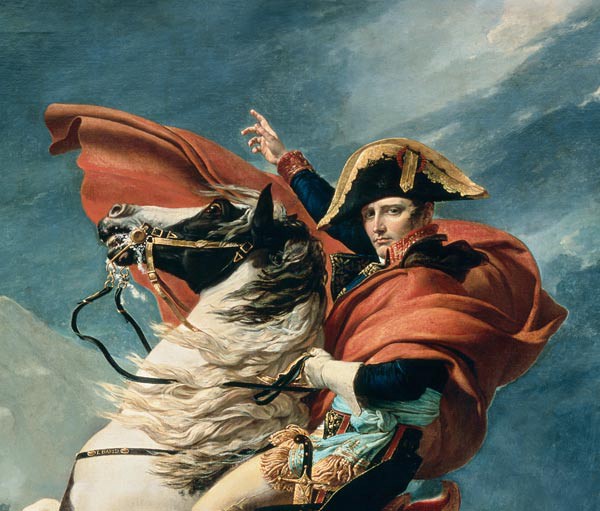essays
Alongside Napoleon: The Memoirs of Napoleon’s Own Valet


Louis Constant-Wairy
It was with surprise that I recently learned that there was such a thing as the memoirs of Louis Constant-Wairy, Napoleon’s valet, memoirs that begin right before the retreat from Russia, wherein the Kremlin explodes, crows fill a field over dead bodies, and horses push through rivers laced with ice and incur gashes upon their sides. Wounded soldiers at a waystation fleeing Moscow are described as being most troubled by the fact that “they had not been able, like the others, to light their camp-fires with the splendid furniture of the wealthy Muscovites,” and that this was “easy to see.”
As one would expect, though, it’s also a book of — how shall I put this? — somewhat devoted praise. No one cares as much as the Emperor. Oh, no. His carriage does not occasionally drive over wounded men, no; he looks after each man individually. “The Emperor was never upset, except at the sight of the suffering of others.” No one is cared about as much as the Emperor. Why else would soldiers cheer “Long Live The Emperor!” when Napoleon crosses an icy river on horseback in lieu of no readily built (let alone stable) bridge?
If only James Fenton were capable of time-travel and had moved straight from The Snap Revolution back to this; if only he had picked up a baffled W.G. Sebald puttering around in his Norfolk gardens in some sort of coughing Volvo and had started cordially interrogating the man about A Place in the Country tracing Napoleonism to Nazism while Sebald tried to figure out how to work the radio; if only they’d picked up Ryzard Kapuscinski, who would probably be expecting them, anyway; and if only they’d picked up Gabo, who would get into the car grumbling about some bastard still being alive. “Didn’t I kill him off in 1975?” And they’d drive through the French countryside, peering through the windows, flicking the occasional cigarette out onto the grass while waiting for — well, what, exactly?
A little later in the volume, Napoleon slanders Rome amongst company, calling it “a receptacle for the dregs of all nations … The women … are indolent, and show no zeal or activity for the ordinary business of life; in fact, theirs is the lazy effeminacy of Asia,” and it passes by without comment; then, Constant tells us, “after war, public buildings were what the Emperor most liked,” and as we quietly imagine the OKCupid profile (or 1970’s dating show, where “My turn-ons are war … and buildings” is delivered in an Andy Kaufman-styled voice), a letter from Napoleon speaks to how he wants “a little theatre, a small chapel, and, above all be very careful that there is no stagnant water about the place,” and — later still — he “began pulling [Constant’s] ears, which he always did when in a good humor.”
Which adds up to this (or so — right now — I think): it’s crazy that someone as obsessed with power as Lyndon Baines Johnson often reduced his narrative understanding of it to something as insultingly gnomic as “Power is where power goes,” and yet that’s what gets the oxygen. Not only is power is where power goes, but the oxygen of the story goes there, too, and that’s crazy. That’s absolutely crazy. And yet it keeps happening: it’s difficult not to look at Turkey and Erdogan, Putin and Russia, and what once was Ahmadinejad and Iran and become taken by the notion of how dexterity and the dexterity of grace fare beneath the hovering vacuum of power and the narratives seemingly store-housed by the person with that power. And it’s something that threatens to be a false dichotomy, sure — there will always be a Howard Zinn or a Studs Terkel or an Alan Lomax, sure — and “I saw history” biographies are useful, needed, and necessary. But it’s not enough. Dexterity must live. Grace must live. So we read about Napoleon, invent a car, and ask if anyone wants a ride.









